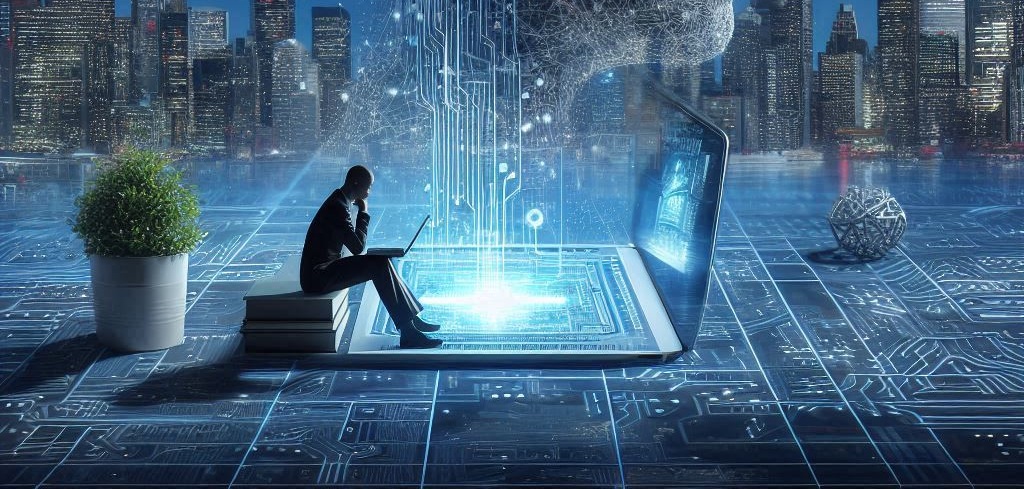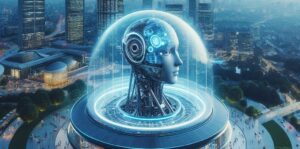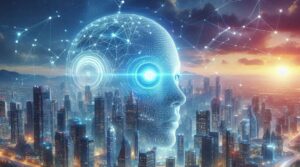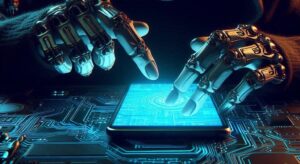Artificial Intelligence (AI) has revolutionized the way we live, work, and interact with the world around us. In just a few short decades, AI has gone from being a futuristic concept to a driving force behind many of the most innovative technologies in use today.
The impact of AI on modern technology is profound, spanning across multiple industries and touching almost every aspect of our daily lives.
From automating mundane tasks to transforming complex industries like healthcare and finance, AI’s influence is reshaping the modern technological landscape in ways that are both exciting and, at times, unsettling.
Read More: The Future of Renewable Energy Technologies
1. AI and Automation: Revolutionizing Efficiency
One of the most significant impacts of AI on modern technology is its ability to automate tasks. Automation driven by AI is increasingly used across various industries to improve efficiency, reduce human error, and save time and money. In manufacturing, for example, AI-powered robots now handle complex assembly lines, ensuring products are made with precision and speed. In logistics, AI algorithms optimize delivery routes, significantly reducing costs and improving delivery times.
Beyond industrial applications, AI is revolutionizing personal productivity. Voice-activated assistants like Amazon’s Alexa, Google Assistant, and Apple’s Siri make day-to-day tasks, such as setting reminders, answering questions, and controlling smart home devices, more convenient. With advances in natural language processing (NLP), these AI-driven tools are becoming more sophisticated, learning user preferences, and adapting over time to provide personalized assistance.
However, as AI-powered automation continues to grow, concerns about job displacement arise. While AI can create new job opportunities in emerging fields like AI development, machine learning, and data analysis, it also threatens to displace workers in roles that rely on repetitive tasks, such as manufacturing, data entry, and customer service.
2. Transforming Healthcare: From Diagnostics to Treatment
AI’s impact on healthcare is another area where its influence is becoming increasingly apparent. AI algorithms, particularly those driven by machine learning, are helping medical professionals make more accurate diagnoses, identify treatment plans, and even predict patient outcomes. AI-powered diagnostic tools can analyze medical images such as X-rays, CT scans, and MRIs faster and, in some cases, more accurately than human doctors.
In genomics and drug discovery, AI is accelerating research by identifying patterns in massive datasets that would be impossible for humans to process. For example, AI algorithms are being used to predict how different drugs will interact with specific genetic profiles, leading to more personalized and effective treatments. Furthermore, AI has played a critical role in speeding up vaccine development, as seen during the COVID-19 pandemic.
AI is also transforming patient care with innovations such as telemedicine, remote monitoring devices, and AI-powered chatbots that assist in managing patient inquiries. While these advances improve access to healthcare and patient outcomes, they also raise ethical questions about data privacy and the potential for AI to replace human healthcare providers in certain contexts.
3. AI in Finance: Enhancing Decision-Making and Fraud Detection
The finance sector has embraced AI in a big way, with algorithms now playing a vital role in everything from credit scoring and trading to fraud detection. AI-driven trading systems analyze large volumes of financial data in real time, identifying trends and making split-second decisions that maximize profits or mitigate risks. These systems are increasingly outperforming human traders in terms of speed and accuracy.
AI is also being used in the world of personal finance. Robo-advisors, which use AI algorithms to manage investment portfolios, offer personalized advice and management services at a fraction of the cost of traditional financial advisors. AI’s ability to assess large datasets allows these advisors to make recommendations tailored to individual investors’ risk tolerance, financial goals, and market conditions.
One of the most important applications of AI in finance is fraud detection. Machine learning algorithms can analyze transaction patterns and flag suspicious activities, often before they result in financial losses. As AI continues to evolve, these systems will become more sophisticated, detecting even the most subtle forms of fraud.
However, the widespread use of AI in finance has also introduced risks. Algorithmic trading, for example, can lead to market volatility if the systems react too quickly to market changes. Moreover, the use of AI in decision-making, particularly in lending and credit scoring, raises concerns about bias and fairness, as algorithms may unintentionally perpetuate discrimination if they rely on biased data.
4. AI in Education: Personalizing Learning
AI is reshaping education by offering personalized learning experiences for students. Intelligent tutoring systems (ITS) use AI to adapt lessons based on a student’s performance, ensuring that they receive the support they need to succeed. These systems can analyze how students interact with the material, where they struggle, and where they excel, tailoring the content to match their learning style and pace.
In higher education, AI is helping institutions manage administrative tasks such as admissions, grading, and student support. AI-powered systems can evaluate student applications, provide personalized feedback, and even assist in course selection. Additionally, AI-powered chatbots offer students 24/7 access to information, answering common questions about enrollment, deadlines, and campus life.
The use of AI in education, while promising, also presents challenges. Critics argue that relying too heavily on AI could diminish the role of human educators, and that algorithms may not be able to fully understand the nuances of a student’s needs. Additionally, as with other industries, concerns about data privacy and algorithmic bias must be addressed to ensure that AI tools in education are used responsibly.
5. AI and Entertainment: Enhancing Creativity and User Experience
The entertainment industry has embraced AI to enhance creativity, streamline content creation, and improve user experiences. Streaming platforms like Netflix, Spotify, and YouTube use AI algorithms to recommend content based on user preferences and viewing habits. These algorithms analyze vast amounts of data to provide personalized recommendations that keep users engaged for longer periods.
AI is also being used in content creation. For example, AI tools can now generate music, write scripts, and even create visual art. While these AI-generated creations may not yet rival those of human creators, they are gaining traction in areas like advertising, where personalized, data-driven content is in high demand.
In video game development, AI plays a key role in creating dynamic, immersive experiences. AI-powered non-player characters (NPCs) can adapt to player behavior, providing more challenging and engaging gameplay. Additionally, AI is being used to create realistic environments, improve animation quality, and even generate entire game worlds procedurally.
However, the rise of AI in entertainment has sparked debates about the potential loss of human creativity. Some fear that AI could eventually replace human artists, writers, and musicians. While AI can assist in the creative process, many argue that it lacks the emotional depth and intuition that human creators bring to their work.
Conclusion
Artificial Intelligence is undeniably transforming modern technology, impacting industries ranging from healthcare and finance to education and entertainment. Its ability to process vast amounts of data, automate tasks, and enhance decision-making has led to significant improvements in efficiency, personalization, and innovation.
However, as AI continues to evolve, it raises important questions about privacy, ethics, and the potential displacement of human workers and creators. The future of AI will depend on how we choose to harness its power, balancing its immense potential with the need for responsible and ethical use.
As we move forward, it is crucial to continue exploring the benefits of AI while addressing its challenges, ensuring that it serves as a tool to improve our lives without compromising our values or the human touch that makes many aspects of life truly meaningful.








